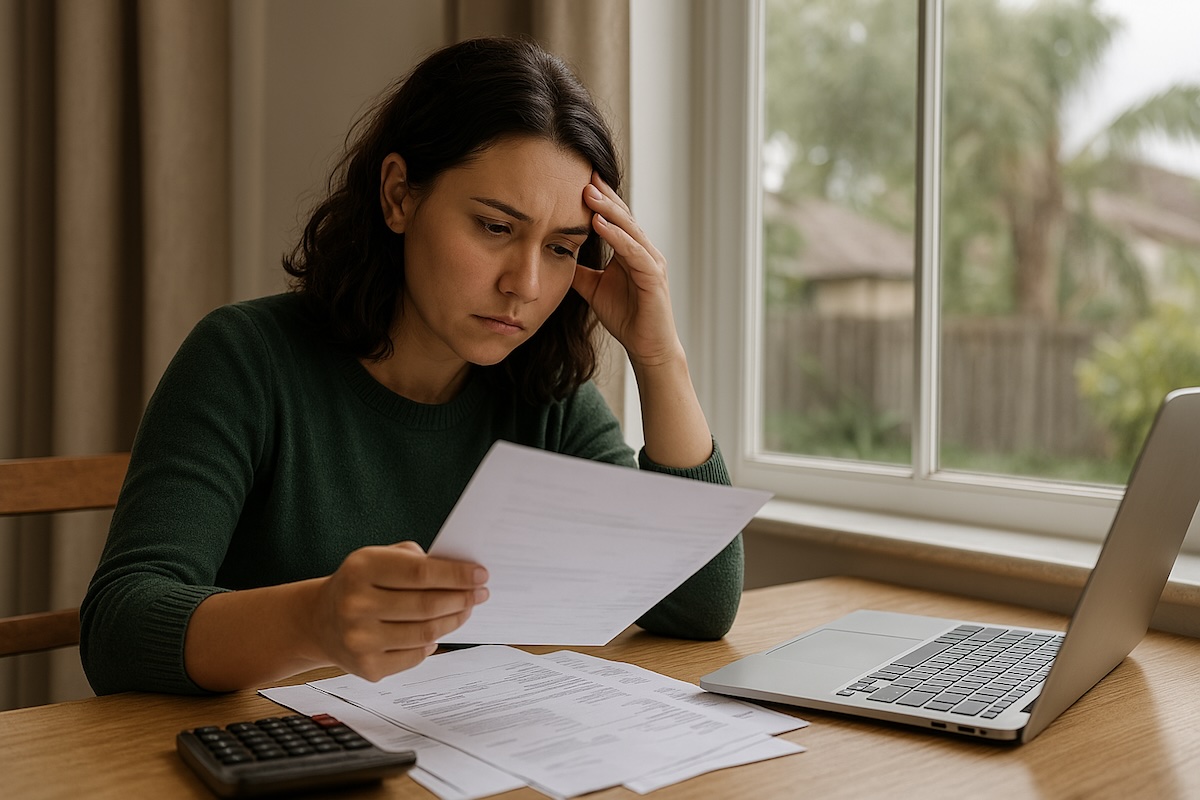Table of Contents
ToggleDoes Bankruptcy Clear Settlements? Here’s the Real Answer for Florida Residents
If you’re staring down the reality of extreme financial stress—collection calls, legal threats, unpaid debts, maybe even a judgment settlement—you’re probably wondering: does bankruptcy clear settlements?
The short answer: Yes, in many cases, bankruptcy can eliminate or reduce your settlement obligations.
But like many legal questions worth asking, the real answer requires nuance. Not all settlements are treated equally under bankruptcy law, and whether a settlement is wiped away or survives depends on several factors.
So let’s unpack the full picture—because the answer isn’t just “yes” or “no.” It depends on the type of debt, the type of bankruptcy you file, and whether the settlement is classified as dischargeable under the law.

This guide is designed for Floridians who are considering bankruptcy as a way out. We’ll break down everything from how settlements work, to how they interact with bankruptcy laws, and what it all means for your specific situation.
While we provide some general insights, nothing in this article should be considered legal advice or a substitute for legal advice—be sure to consult with a qualified Florida bankruptcy attorney to understand how the law applies to your case.
What Are Settlements in the First Place?
Before we dive into how bankruptcy affects them, let’s start with the basics: what exactly is a debt settlement?

In the simplest terms, a settlement is a formal agreement between you and a creditor to resolve a debt—typically for less than the full amount originally owed. It’s a negotiated truce, often struck when a creditor realizes that collecting the entire balance is unlikely, and some payment is better than none.
Settlements can come into play at different points in the debt collection process. A creditor might agree to a settlement after:
- Filing a lawsuit against you and winning a judgment in court
- Negotiating directly with you or your attorney, before formal legal action begins
- Charging off a portion of the debt and opting to recover whatever they can
In any scenario, the goal is the same: to close the books on the debt—albeit at a discount—and avoid further collection costs or litigation.
Now, it’s important to distinguish between the two primary types of settlements:
1. Pre-Lawsuit Settlements
These are arrangements made before any legal action is taken. You or your representative might negotiate directly with a creditor or debt collector to settle the outstanding balance in exchange for a lump-sum payment or a structured payment plan. Pre-lawsuit settlements can be informal, but once signed, they’re binding contracts and can carry legal weight.
2. Post-Judgment Settlements
These occur after a creditor has successfully sued you in court and obtained a judgment—a legal determination that you owe a specific amount of money. Post-judgment settlements are more serious because they follow a formal court ruling. Creditors holding a judgment have broader enforcement powers, including wage garnishment, bank levies, and even liens on property. In these cases, settlements are typically negotiated to stop or reduce aggressive collection efforts.
Whether reached before or after a lawsuit, all settlements create a legally enforceable obligation on your part. And once you’re under one, your financial options can feel limited—unless bankruptcy enters the conversation.
So, the question becomes: can bankruptcy override or erase that obligation? Let’s keep going.
Can Bankruptcy Wipe Out These Settlements?
Chapter 7 Bankruptcy (Liquidation)

Chapter 7 is the most common form of personal bankruptcy. It wipes out most unsecured debts, which includes:
- Credit card debt
- Medical bills
- Personal loans
- Most civil judgment settlements
If the settlement is tied to a dischargeable debt (like credit card debt), then Chapter 7 usually erases the entire settlement, even if a court judgment already exists.
Chapter 13 Bankruptcy (Repayment Plan)
Chapter 13 works differently. You’ll enter a court-approved 3-to-5-year repayment plan based on your income and assets. While some settlement debts may be partially repaid, most remaining balances get discharged at the end of your plan—meaning the debt disappears legally.
So yes, settlements can still be cleared in Chapter 13, just in a more structured way.
Settlements Bankruptcy Won’t Clear
Some types of settlements are considered non-dischargeable under U.S. bankruptcy law, such as:
- Debts from fraud or intentional harm
- Personal injury settlements from DUI accidents
- Child support or alimony-related settlements
Recent tax debts - Criminal restitution
If your settlement falls into one of these above categories, filing bankruptcy won’t erase it.
💡 What About Student Loan Settlements?
Student loan settlements technically fall under the umbrella of debt settlements—but they’re treated very differently in bankruptcy.
Even if you’ve negotiated a reduced payoff with your loan servicer (federal or private), student loans are not automatically dischargeable like credit card or medical debt. To wipe them out in bankruptcy, you may consider filing a separate lawsuit called an adversary proceeding and prove that repayment would cause you “undue hardship”—a high legal standard.
In short: student loan settlements are a separate issue, and bankruptcy will not clear them automatically. That said, under the right circumstances, you may be eligible to discharge up to 100% of your student loans—even if your bankruptcy case is already closed.
👉 Want to explore this more? Learn more about Bankruptcy and Student Loans in Florida
What If There’s Already a Judgment Against Me?
If a creditor has already taken you to court and won, you’re dealing with more than just an unpaid bill—you’re dealing with a legal judgment, and that changes the playing field significantly.
A judgment is a court-backed determination that you legally owe a specific amount of money to a creditor. It’s not just a strong suggestion—it’s enforceable by law. Once a judgment is in place, creditors have powerful tools at their disposal to collect what they’re owed. This can include:
- Wage garnishment – where a portion of your paycheck is automatically deducted and sent to the creditor
- Bank account levies – where funds in your checking or savings account can be frozen or seized
- Property liens – which can be recorded against your home, car, or other assets, clouding your title and potentially forcing a sale
Understandably, a judgment can feel like a trap door opening beneath your financial stability.
But here’s where bankruptcy can change the game.
If the underlying debt—the original reason you were sued—is a dischargeable debt under bankruptcy law (like credit cards, personal loans, or medical bills), then filing for bankruptcy can eliminate your legal obligation to pay, even if the court has already issued a judgment against you. That’s right—the judgment itself can be wiped away, provided the debt it’s based on qualifies for discharge.
However, there’s an essential detail you need to know:
Bankruptcy can eliminate the personal liability, but it does not automatically remove liens placed on your property as a result of that judgment.

If a lien has been filed against your home, vehicle, or other real estate, that lien survives the bankruptcy unless you take additional legal action. To remove it, you’ll need to file a specific motion with the bankruptcy court: a lien avoidance motion or motion to avoid lien. If approved, the court can strip the lien from your property—clearing the title and freeing you from the long-term consequences of that judgment.
This part of the process can be complex, but it’s critical—especially if you plan to sell or refinance your home in the future.
So to sum it up:
- Yes, bankruptcy can eliminate judgments—as long as the debt behind them is eligible.
- But removing judgment liens from your property requires an additional legal step, and that’s where working with a seasoned bankruptcy attorney becomes invaluable.
If you’re in Orlando or Winter Park and there’s already a judgment on your record, don’t panic—but do act quickly. The sooner you file, the better chance you have at stopping garnishments, lifting levies, and potentially reversing the damage before it becomes irreversible.
Florida-Specific: What About Settlements in Orlando, Winter Park, Kissimmee (or My Hometown)?
Here in Florida, we have some state-specific protections that can make bankruptcy more helpful, including:
- The Florida Homestead Exemption – It protects your primary residence from being seized in Chapter 7 bankruptcy.
- No wage garnishment for heads of household earning under a certain threshold.
- Florida doesn’t allow you to discharge certain court costs or restitution fines, so read your settlement closely.
If you’re in Orlando, for example, you’ll file through the Middle District of Florida Bankruptcy Court, which handles all cases for Orange and Seminole counties.
When Does It Make Sense to File Bankruptcy?
Here are some common situations where filing bankruptcy to clear a settlement might be considered as a long-term financial move:
- You owe more than $10,000 in settlements or judgments
- You’re facing multiple wage garnishments or lawsuits
- The settlement stems from credit cards, personal loans, or medical bills
- You’ve already tried debt settlement but the creditor is still pursuing legal action
If you’re paying monthly on a judgment settlement and it’s crushing your finances, bankruptcy may provide immediate relief and a full reset. However, it’s important to consult personally with a legal professional with experience in bankruptcy law in your state and/or jurisdiction before deciding whether or not to file.
Do I Need a Bankruptcy Attorney in Orlando or Winter Park?
Technically? No. But realistically? Yes—you absolutely should consult a bankruptcy lawyer.
You can technically file for bankruptcy without an attorney. It’s called filing “pro se,” and the courts do allow it. But just because you can do something does not always mean you should.
Bankruptcy law is incredibly nuanced. It’s not just filling out forms and submitting them to the court. It’s about knowing which debts qualify for discharge, how to properly categorize them, which assets are protected under Florida exemptions, and how to avoid procedural mistakes that could jeopardize your case.

Filing without an attorney carries some important risks, including:
- Misclassifying your settlement debt, which could result in the court deeming it non-dischargeable
- Overlooking critical exemptions that could have protected your home, car, retirement savings, or other valuable assets
- Failing to comply with court procedures or deadlines, which can lead to case dismissal or reduced protections
- Opening the door to creditor challenges, where a creditor argues that your debt shouldn’t be discharged—and wins
This is not intended as a scare tactic. It is simply the reality of a complex legal process that’s easy to mishandle without proper representation.
Conversely, working with a reputable bankruptcy attorney in Orlando or Winter Park gives you some advantages. An experienced lawyer can:
- Carefully review the details of your settlement
- Determine if the debt is dischargeable under Chapter 7 or Chapter 13
- Guide you through every step of the process
- Maximize your legal exemptions so you keep as much of your property as possible
- Represent you at hearings and respond to challenges from creditors
It’s worth noting that Florida has its own state-specific bankruptcy laws and exemptions. A local attorney will understand the regional nuances of the Middle District of Florida Bankruptcy Court, as well as how judges and trustees in Orlando and Winter Park typically handle settlement-related filings.
Takeaways: Does Bankruptcy Clear Settlements?
In many cases, yes—bankruptcy can absolutely clear settlements, and for a lot of individuals, it’s the key to getting out from under a mountain of stress and legal obligation.
Most settlements tied to unsecured debts—things like credit cards, medical bills, personal loans, and civil judgments—are considered dischargeable under U.S. bankruptcy law. That means bankruptcy can either eliminate your obligation to pay the remaining balance or dramatically reduce what you owe, depending on the chapter you file under.
But here’s the caveat: not all settlements are created equal.
Some stem from debts that bankruptcy simply won’t touch—like child support, recent tax liabilities, or damages resulting from fraud or intentional harm. Others may be attached to judgments that have resulted in liens against your property, which require additional legal steps to remove. For their part, student loans may require specific legal steps and specific circumstances to deal with.
And then there’s the complexity of choosing between Chapter 7 vs. Chapter 13, each with its own rules, timelines, and protections.
So, while the promise of relief through bankruptcy is very real, the outcome depends heavily on the details—the type of settlement, how the debt originated, your income and assets, and even the timing of your filing.

If you’re located in Orlando or Winter Park, like other Floridians, you’re in a favorable position. The State of Florida offers some robust legal exemptions that can protect your home, retirement savings, and other essentials. But navigating those laws—and making sure you’re using them to your full advantage—takes insight and experience.
No online article can replace actual legal advice. That’s why it’s important to consult with a Florida bankruptcy attorney about your situation. Let them review your settlement paperwork, walk you through your options, and give you a specific, realistic outlook of how filing would impact your specific situation.
You’ve already done one of the hardest parts—asking the right questions. Now it’s time to get the correct answers for your exact situation from someone who can guide you through the process, protect your rights, and help you start fresh. The reset button might be closer than you think!
If you’re local to Orlando or Winter Park, or live anywhere else in the State of Florida, consider booking a free consultation with a Florida bankruptcy attorney at The Independence Law Firm who can look at your settlement paperwork and show you exactly what can happen when and if you choose to file. Call (813) 642-4603 or click here to book an in-person or Zoom appointment online.
Disclaimer: The information presented in this article and across this website is presented for general educational purposes only. Although this article discusses legal issues, it is not legal advice. Please be aware that laws and the content of any linked websites or pages might have evolved since the publication of this article, and as such, we cannot guarantee the ongoing accuracy of any presented information. Utilizing this article does not establish an attorney-client relationship.


